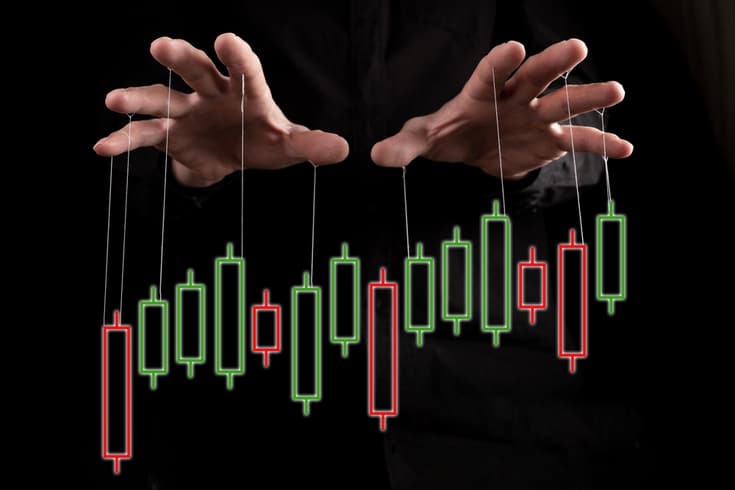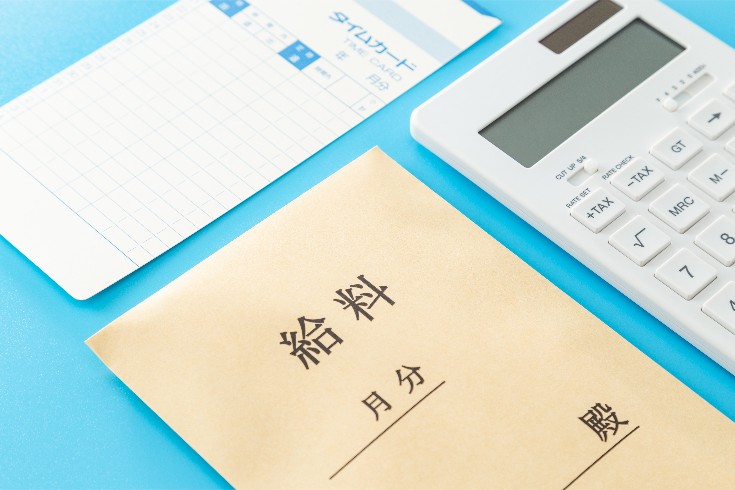What are the Points to Note in Disseminating Investment Information? Explaining the Regulations of the 'Japanese Financial Instruments and Exchange Act' and Others

In recent years, various individuals and entities such as securities firms have been utilizing the internet to disseminate investment-related information, with many people conducting transactions in stocks and other securities based on this information. When a company disseminates investment information, it is crucial to ensure that the content of the information does not violate legal regulations such as the Japanese Financial Instruments and Exchange Act.
In this article, we will explain the regulations related to the dissemination of investment information, focusing primarily on the Japanese Financial Instruments and Exchange Act.
What is the Regulation of Information Transmission and Transaction Recommendation?

The “Regulation of Information Transmission and Transaction Recommendation” is a regulation introduced by the amendment of the Japanese Financial Instruments and Exchange Act in 2013 (Heisei 25).
Before the amendment of the Japanese Financial Instruments and Exchange Act in 2013, it was prohibited for those who knew important internal information of a company to use that information to trade stocks and other securities themselves.
However, it was not prohibited to transmit that important internal information to others, or to recommend transactions to others based on that important internal information. Without legal regulation of these actions, it would be impossible to prevent fraudulent transactions such as insider trading.
Therefore, the Japanese Financial Instruments and Exchange Act was amended in 2013, and it became prohibited to transmit important internal information to others and to recommend transactions to others based on that important internal information.
What is Information Disclosure and Trading Recommendation?
The act of information disclosure and trading recommendation by company insiders is defined under Article 167-2, Paragraph 1 of the Japanese Financial Instruments and Exchange Act.
(Prohibition of Disclosure of Unpublished Material Facts)
Japanese Financial Instruments and Exchange Act[ja]
Article 167-2: A person who is a company insider related to a listed company, etc., as defined in Paragraph 1 of Article 166 (including those defined in the latter part of the same paragraph), and who has learned of material facts related to the business, etc., of the listed company, etc., as defined in the same paragraph, shall not disclose such material facts to another person, or recommend the sale or purchase of specific securities, etc., of the listed company, etc., with the intention of enabling the other person to gain profit or avoid loss before the publication of such material facts as defined in the same paragraph.
Here, the transmission of insider information that meets the following requirements is prohibited:
- By a company insider or former company insider
- Regarding important matters related to a listed company
- Before it is made public
- To another person
- With the intention of enabling the other person to gain profit or avoid loss through trading
- By disclosing important matters or recommending trading
Furthermore, a company insider refers to the following individuals:
- Officers (including employees when the accounting advisor is a corporation), agents, employees, and other workers of a listed company, its parent company, and its subsidiaries
- Shareholders, etc., who have rights as defined in Article 433, Paragraphs 1 and 3 of the Japanese Companies Act, with respect to the listed company, etc.
- Those who have entered into a contract with the listed company, etc., or are in negotiations to do so
Additionally, a former company insider refers to individuals who are no longer company insiders (for example, when a company officer resigns, an employee retires, or a contractual relationship is terminated) for a period of one year thereafter.
Who is regulated for the transmission of insider information?

Under Article 167-2, Paragraph 1 of the Japanese Financial Instruments and Exchange Act, company insiders or former insiders who transmit insider information are subject to regulation.
On the other hand, if a person (the first recipient) who has received insider information from a company insider or former insider further transmits that information to another person (the second recipient), the first recipient will not be subject to regulation under the Japanese Financial Instruments and Exchange Act, provided they are not a company insider or former insider.
Precautions When Receiving Insider Information
In the previous section, we discussed the regulations for those who disseminate insider information.
For those who receive insider information, the following is stipulated in Article 166, Paragraph 3 of the Japanese Financial Instruments and Exchange Act:
3. Any person who has received from a company insider (including those specified in the latter part of paragraph 1; the same shall apply hereinafter in this paragraph) the transmission of important facts concerning the business, etc., which the company insider knew in accordance with the provisions of each item of paragraph 1 (excluding those listed in each item of the same paragraph who knew the important facts concerning the business, etc., in accordance with the provisions of each item), or any other officer, etc., of the corporation to which the person who received the transmission in the course of his/her duties belongs, who knew the important facts concerning the business, etc., in connection with his/her duties, shall not engage in the sale and purchase, etc., of the specific securities, etc., of the listed company, etc., unless the important facts concerning the business, etc., have been made public.
Japanese Financial Instruments and Exchange Act[ja]
In other words, those who have received the transmission of insider information cannot trade stocks, etc., if they meet the following requirements:
- Received from a company insider or former company insider
- Significant company information (important facts) that could significantly influence an investor’s investment decision, which was obtained through their duties or position
- The person who received the transmission
- Before the information is made public
- Trades specific securities, etc., of the listed company, etc.
On the other hand, for example, it is believed that if a person who is not a company insider or former company insider, but a primary recipient of insider information, buys stocks after seeing insider information posted online, they would not be subject to the above insider regulations.
Dissemination of Investment Information Can Also Constitute Market Manipulation

The dissemination of investment-related information can sometimes be classified as ‘market manipulation’. The Japanese Financial Instruments and Exchange Act prohibits the following actions as market manipulation:
- Wash trading and matched orders (Article 159, Paragraph 1 of the Japanese Financial Instruments and Exchange Act)
- Price fluctuation manipulation (Article 159, Paragraph 2 of the Japanese Financial Instruments and Exchange Act)
- Illegal stabilization transactions (Article 159, Paragraph 3 of the Japanese Financial Instruments and Exchange Act)
‘Wash trading and matched orders’ refers to a situation where the same person places both a sell order and a buy order for the same securities at the same price and at the same time, without intending to transfer rights, and then executes the trade.
‘Price fluctuation manipulation’ refers to a series of trades or other actions that create a false impression of frequent trading in securities or artificially fluctuate the market price of securities, with the aim of inducing others to trade in securities.
‘Illegal stabilization transactions’ refers to a series of trades or other actions aimed at pegging, fixing, or stabilizing the market price of securities, in violation of the conditions, targets, procedures, etc. stipulated by government ordinance, either alone or in collaboration with others.
Relationship with the Unfair Competition Prevention Act (Japanese Unfair Competition Prevention Act)
When disseminating investment information, it is necessary to pay attention not only to the regulations under the Financial Instruments and Exchange Act (Japanese Financial Instruments and Exchange Act), but also to the regulations of the Unfair Competition Prevention Act (Japanese Unfair Competition Prevention Act).
For example, Article 2, Paragraph 1, Item 21 of the Unfair Competition Prevention Act (Japanese Unfair Competition Prevention Act) stipulates that the following acts constitute unfair competition:
Twenty-one: The act of announcing or spreading false facts that harm the business reputation of others in competition.
Unfair Competition Prevention Act (Japanese Unfair Competition Prevention Act)[ja]
For example, disseminating false information about a company in competition with your own, such as “That company is actually deteriorating in management” or “That company is going to go bankrupt soon,” could potentially violate the Unfair Competition Prevention Act (Japanese Unfair Competition Prevention Act).
When disseminating investment information, it is necessary to check not only the Financial Instruments and Exchange Act (Japanese Financial Instruments and Exchange Act), but also whether it violates other laws. For more information on the Unfair Competition Prevention Act (Japanese Unfair Competition Prevention Act), please refer to the following article as well.
Related article: Explaining the Unfair Competition Prevention Act: Requirements and Case Law for Damages for Defamation[ja]
Summary: Consult a Lawyer for Investment Information Disclosure
We have introduced regulations concerning the disclosure of investment information, focusing mainly on the Japanese Financial Instruments and Exchange Act. If you casually share important information about your company with others or recommend transactions, there is a possibility that it may become illegal. When disclosing investment information, we recommend consulting with a lawyer who has specialized knowledge.
Introduction to Our Firm’s Measures
Monolith Law Office is a legal office with high expertise in both IT, particularly the internet, and law. Caution is required when disseminating investment information. Taking into account various legal regulations, our firm analyzes the legal risks associated with businesses that have already started or are about to start, and aims to legalize them as much as possible without stopping the business. Details are described in the following article.
Areas of practice at Monolith Law Office: IT & Venture Corporate Legal Affairs[ja]
Category: General Corporate
Tag: General CorporateIPO





















